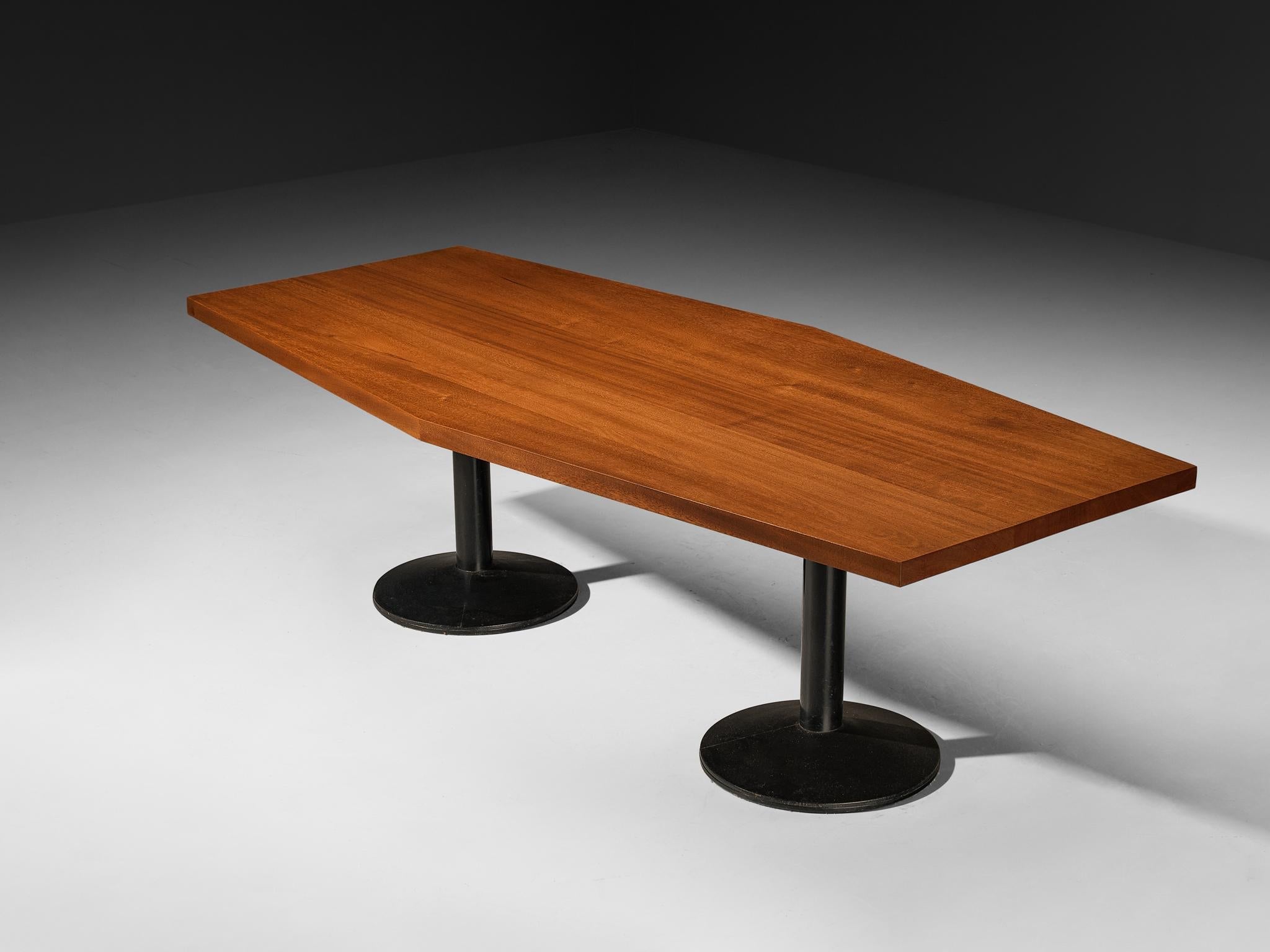
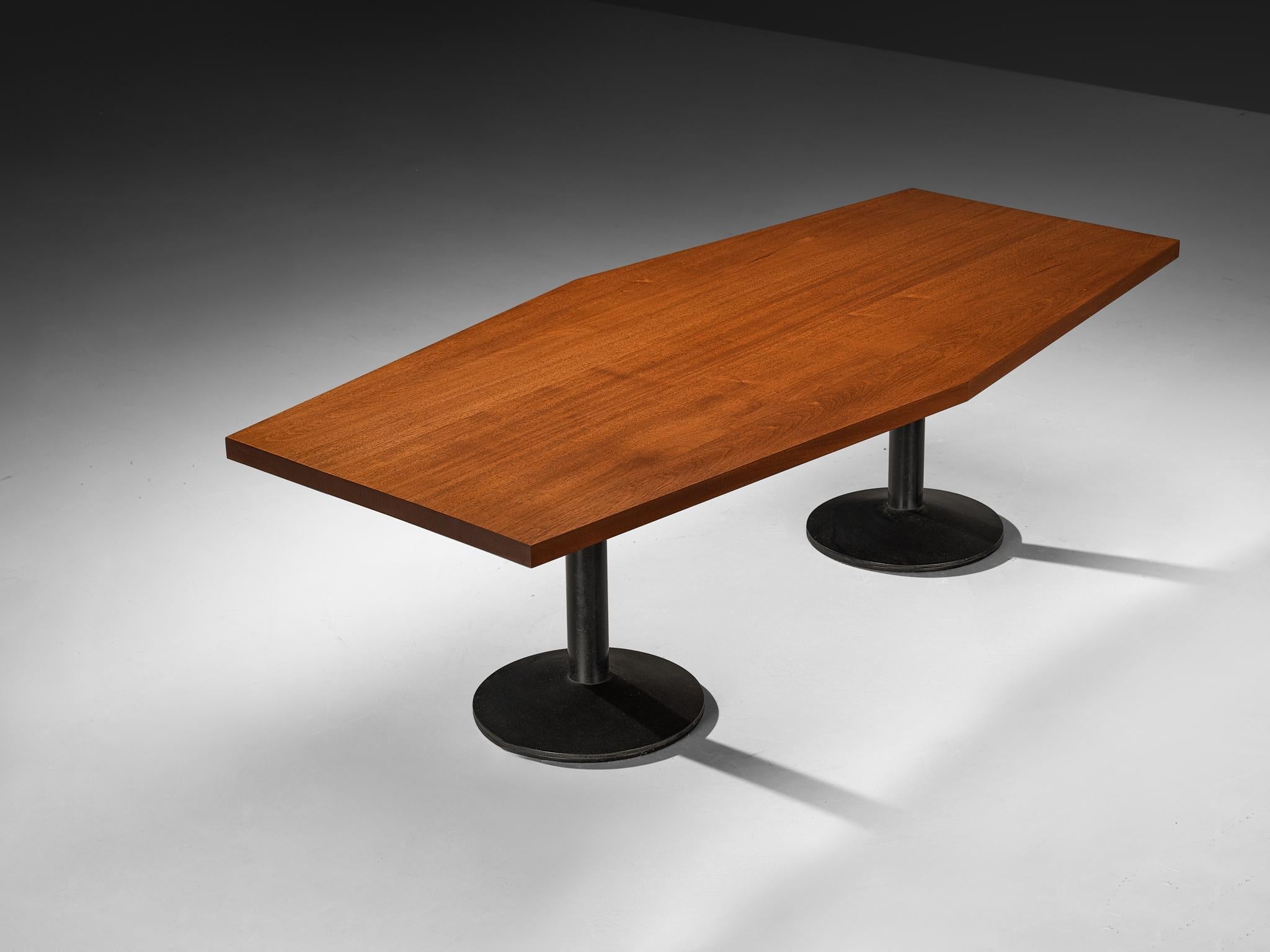
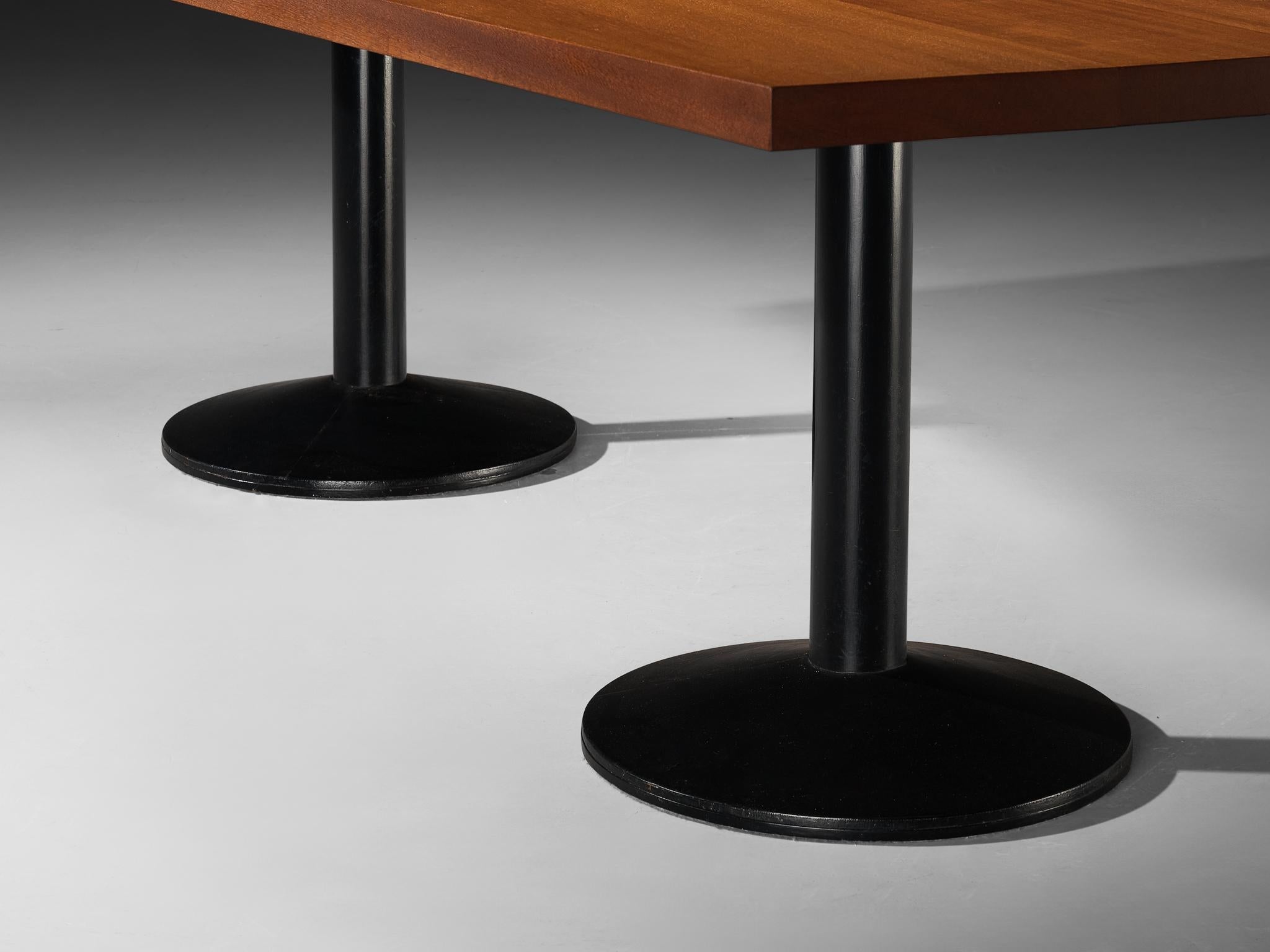
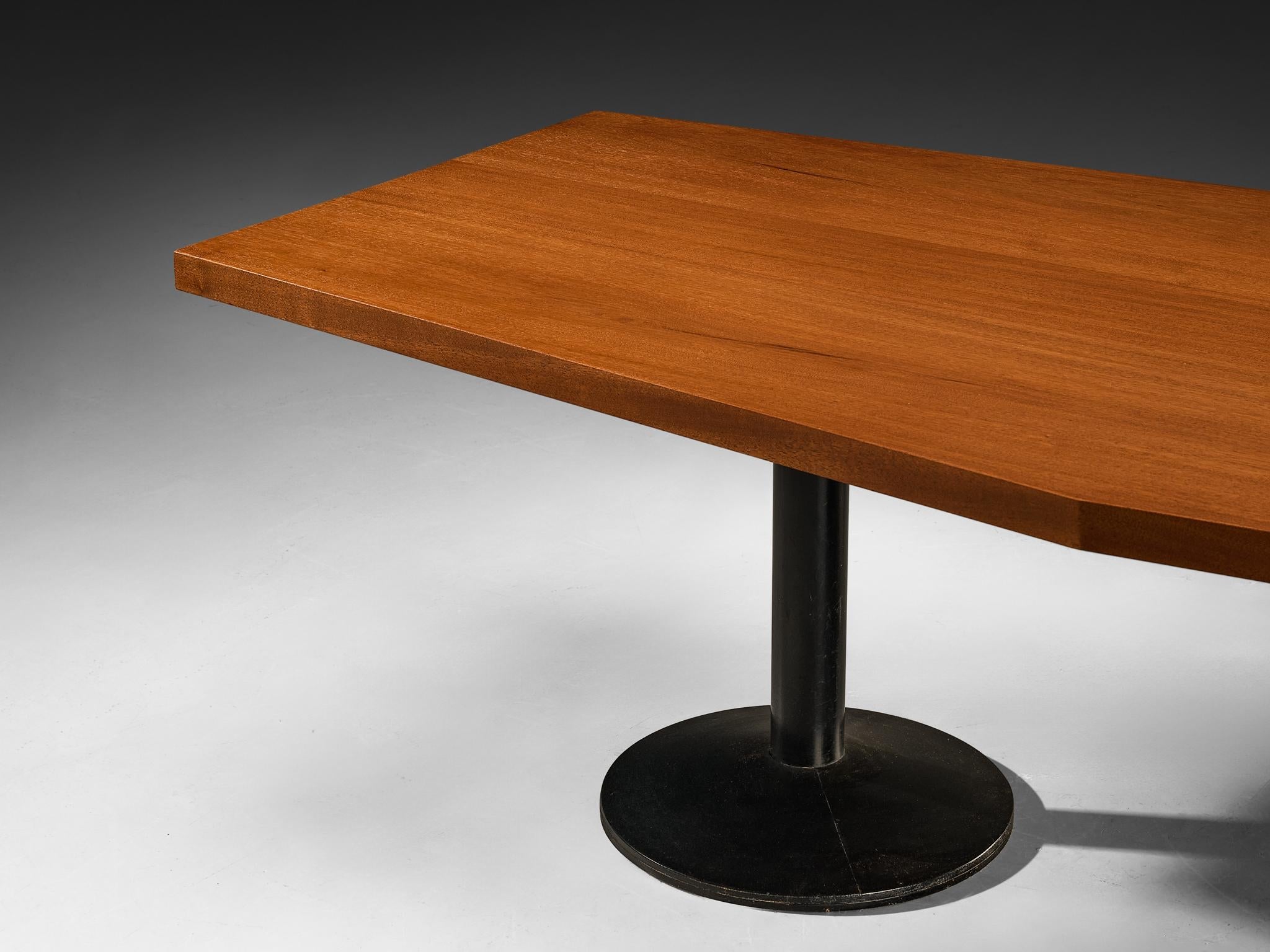
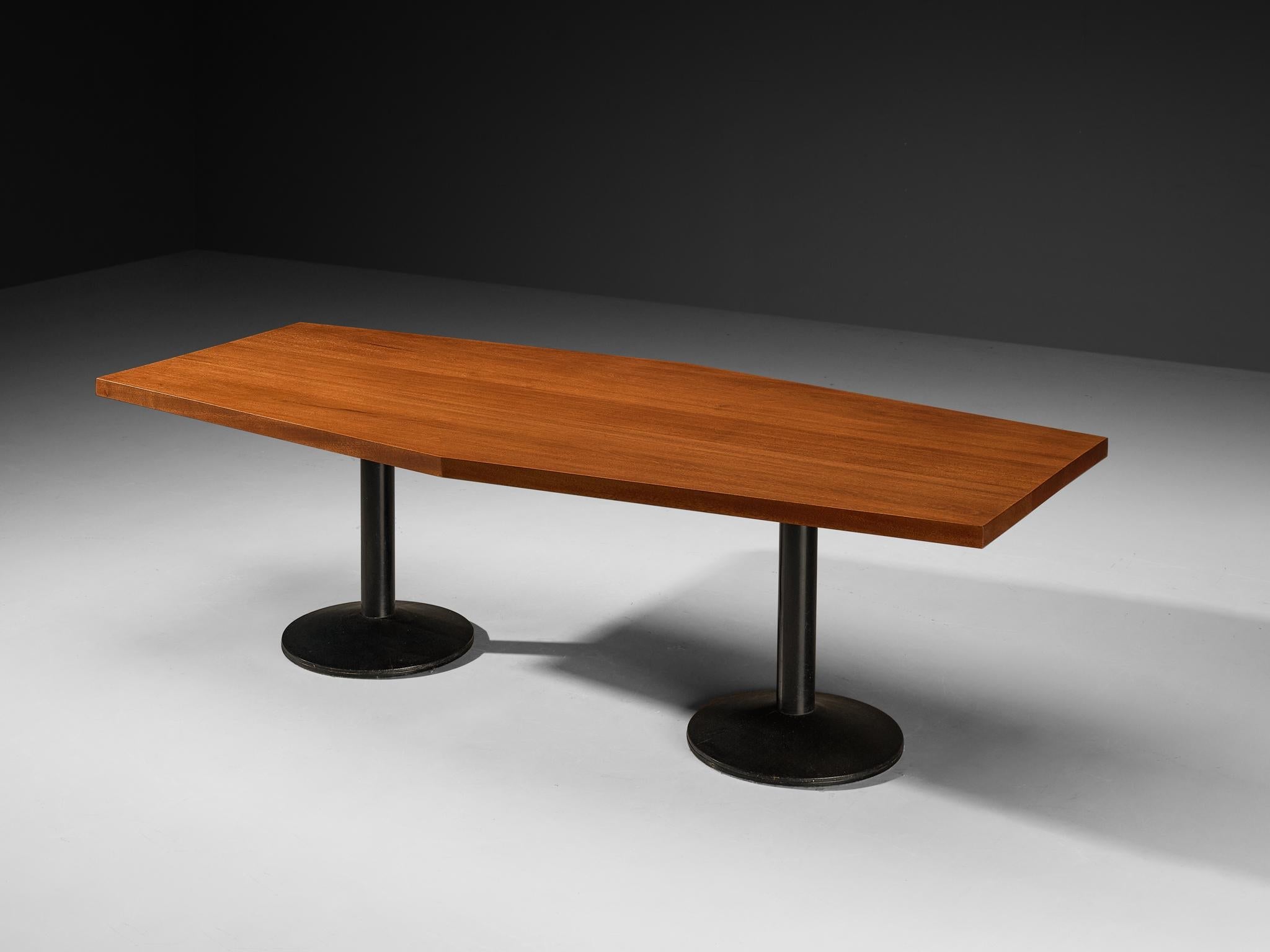
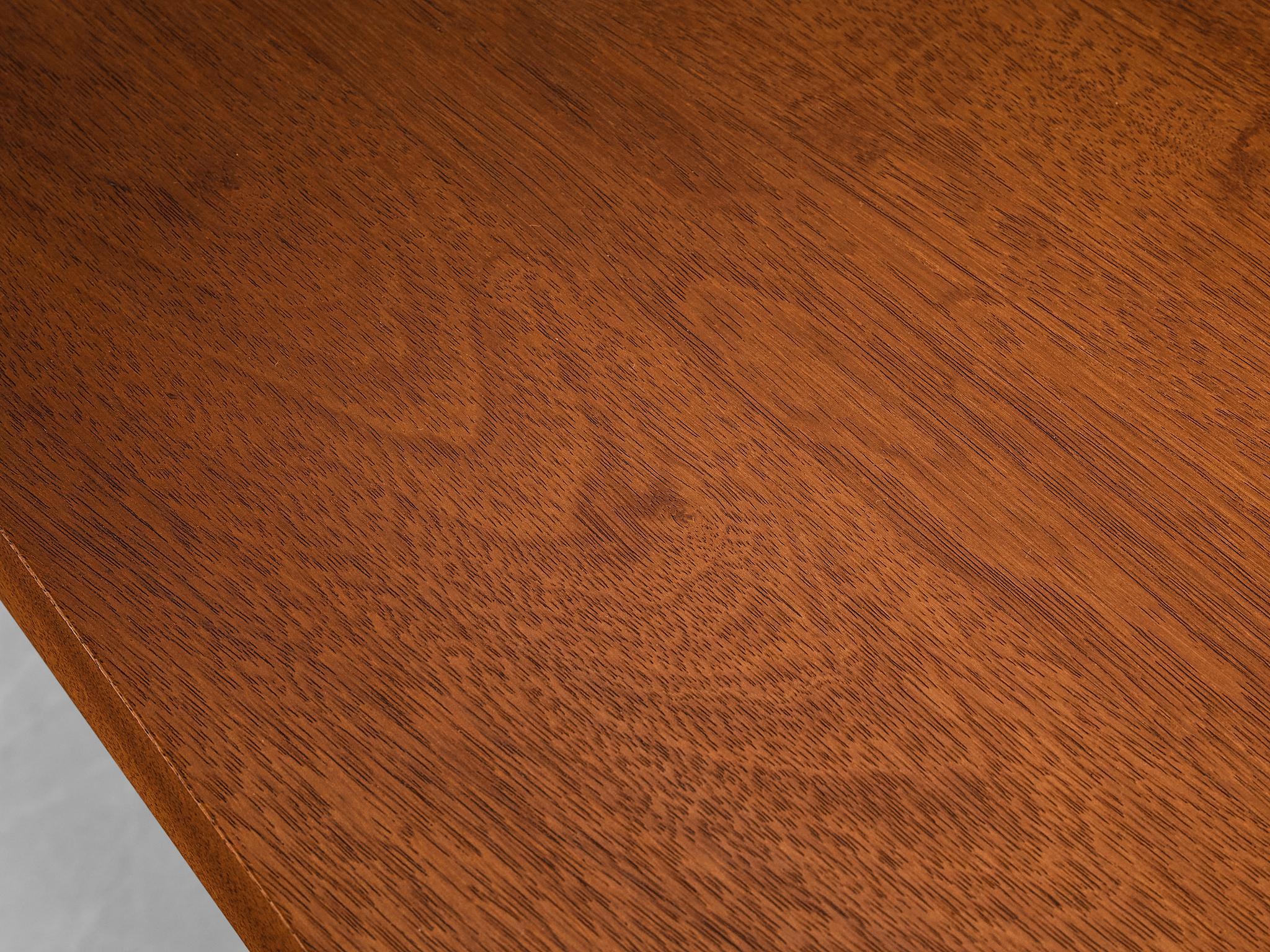
Wim den Boon Dining Table in Solid Mahogany and Metal
Wim den Boon, dining table model ’01-69’, solid mahogany, lacquered metal, The Netherlands, design 1961
This utterly well-designed table is executed in a beautiful elongated hexagon shape which adds a visual excitement to the room, created by the Dutch designer Wim den Boon for a Dutch family home, and therefore one of a kind. The grand table top rests on two disc-shaped lacquered metal legs, making a stunning combination with the warm tones and texture of the solid mahogany. The whole construction is unified and understated, where clean, straight lines are allowed to emerge in the design.
Wim Den Boon (1912-1968) was a Dutch designer, interior designer and architect. Boon was a dogmatic man who believed strongly in the transforming capacities of architecture and design. Den Boon was affected by the architecture of Le Corbusier, De Stijl and Rietveld. Den Boon studied at the Academy for Visual Arts in The Hague in 1941. In 1945 he founded 'Groep & together with Hein Stolle and Pierre Kleykam', a group that manifested itself after te war with interiors and design such as the furniture of the international departure hall of Schiphol in 1948. The purist design of the interiors and furniture fits in seamlessly with the functionalist design of the late 1930s, when avant-garde designers made both chromed tube furniture and curved plywood. Group & also designed a dining room chair for the magazine 'Goed Wonen'. Den Boon was the editorial secretary of this magazine from 1948-1950. cused mainly on purist, functional architecture. He focuses mainly on the power of the space itself and often uses a few large objects with which he fills the space, are not exchangeable often uses everyday objects to base his designs such as trestles and milk bottles. Den Boon has written a number of articles for Goed Wonen, which was the most prominent magazine for interior design in the 1940s and 1950s. His articles are almost strictly educational, his articles were meant to liberate and educate people. Den Boon's dogmatic character and the austere tone of his articles resulted in too much controversy which led to Wim Den Boon being forced to resign from the magazine in 1950.
Kindly note that this piece is in good, used condition.
VAT within the EU: When buying or delivering an item within the EU, VAT usually applies and will be added.
Choose options






Product Details